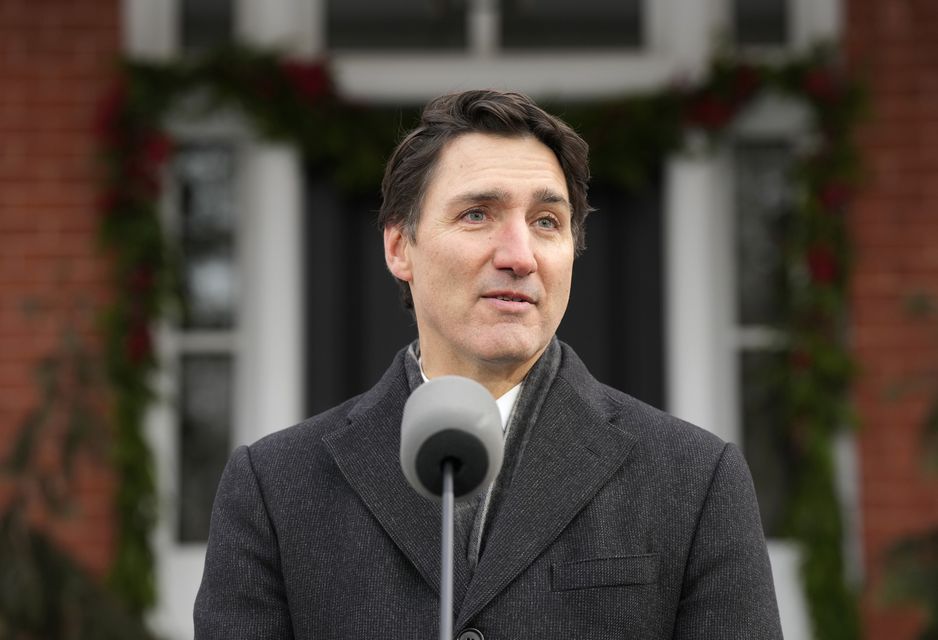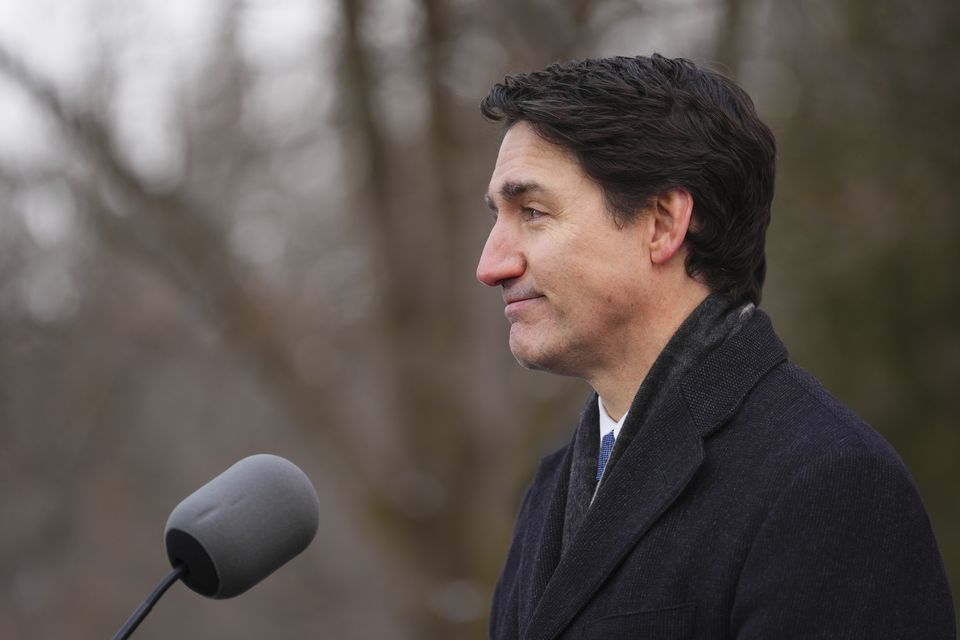Canadian Prime Minister Justin Trudeau has announced his resignation following the rise of discontent over his leadership and growing turmoil within his government.
Mr Trudeau made the announcement at a press conference outside his residence at Rideau Cottage, in Ottawa, saying “internal battles” mean that he “cannot be the best option” in the next election.
Justin Trudeau said that ‘internal battles’ mean he ‘cannot be the best option’ for Canada (Adrian Wyld/AP)
He will stay on as prime minister until a new leader of the Liberal Party is chosen.
Parliament, which had been due to resume on January 27, will be pro-rogued until March 24.
The timing will allow for a Liberal Party leadership race, though it was not clear when nationwide elections would be held to pick a permanent replacement.
All three main opposition parties have said they plan to topple the Liberal Party in a no-confidence vote when Parliament resumes, so a spring election to pick a permanent replacement was almost assured.
Mr Trudeau came to power in 2015 after 10 years of Conservative Party rule and had initially been hailed for returning the country to its liberal past.
Canada Prime Minister Justin Trudeau announces his resignation as Liberal leader (Sean Kilpatrick/The Canadian Press via AP)
However, the 53-year-old scion of one of Canada’s most famous prime ministers became deeply unpopular with voters in recent years over a range of issues, including the soaring cost of food and housing and surging immigration.
The political upheaval comes at a difficult moment for Canada internationally. US President-elect Donald Trump has threatened to impose 25% tariffs on all Canadian goods if the government does not stem what Mr Trump calls a flow of migrants and drugs into the US – even though far fewer of each cross into the US from Canada than from Mexico, which Mr Trump has also threatened.
Canada is a major exporter of oil and natural gas to the US, which also relies on its northern neighbour for steel, aluminium and autos.

